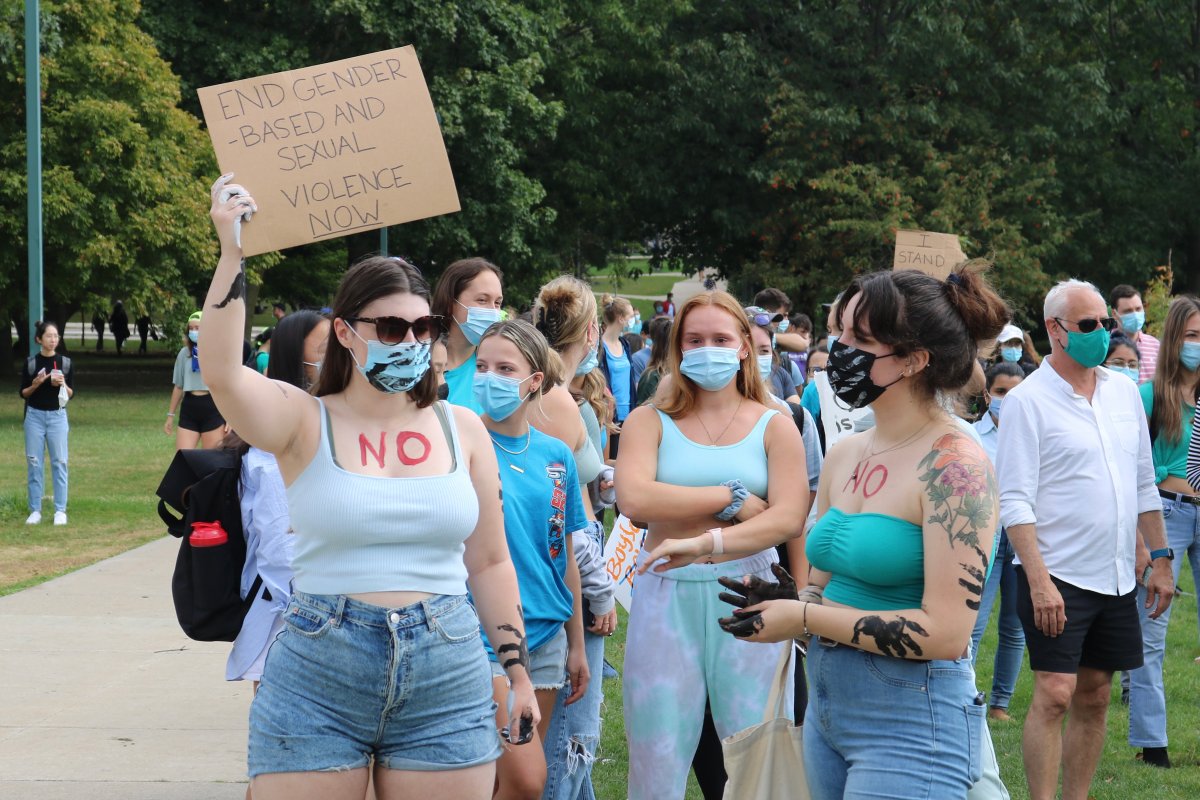A new report on femicide in Canada shows an increase in the killing of women and girls from before the pandemic, with one dying every two days.

The report by the Canadian Femicide Observatory for Justice and Accountability found that the number of killings of women and girls involving male accused in Canada was up by 27 per cent in 2022 compared with before the pandemic in 2019.
The report, which looks at the number of killings of women and girls from 2018 to 2022, showed that more than 850 women and girls had lost their lives, mainly at the hands of men during this time, equaling one every two days.
The definition of femicide is the killing of one or more females because they are females.
“What is so sad for me is the number of women and girls who continue to be murdered in this country,” said advocate Megan Walker.
“Every 46 hours, a woman or girl is murdered. Almost 200 women and girls were murdered over the last year — it was a record number at that point of women and girls killed as of the end of last year.”
The report shows that the number of women and girls killed in 2022 was 184, up from 148 in 2019.
- What is a halal mortgage? How interest-free home financing works in Canada
- Capital gains changes are ‘really fair,’ Freeland says, as doctors cry foul
- Ontario doctors offer solutions to help address shortage of family physicians
- Budget 2024 failed to spark ‘political reboot’ for Liberals, polling suggests
In June of last year, Walker, vice chair of the London Police Service Board and former executive director of the London Abused Women’s Centre, started a campaign to get femicide added to the Criminal Code.
Walker, who has worked for over 35 years helping females who are victims of violence, said it’s crucial to have femicide recognized as a distinct crime in the Criminal Code to help women impacted by violence.
“It’s incredibly important to have femicide in the Criminal Code and also defined. It would assist the criminal justice system and police officers, specifically in laying hate-motivated (charges). It would allow for a better understanding of what femicide is,” she said.
In 2018, the Canadian Femicide Observatory also started the Call it Femicide campaign to push for its acknowledgment.
The organization reports that “from a social, political, and legal standpoint, recognizing femicide as a distinct crime would increase public and professional recognition that the killing of a woman or a girl is often a clear expression of sex-or gender-motivated violence.”
Walker said defining femicide could help victims of male violence against women come forward.
The report showed that in 83 per cent of cases, the accused killer was male.
“What I find most disappointing is that we have a year later still not really moved this issue forward in the way we would like to,” Walker said.
“I worked throughout my career with a number of families whose daughters or sisters or parents had been murdered for no other reason except for perhaps they told the partner they were leaving them. It really is an issue that centres around the lives of women.”
In a statement Tuesday, the Ministry of Justice said the Criminal Code does address gender-based violence through offences of general application, such as assault, sexual assault and homicide.
“These provisions protect everyone, regardless of sex, gender identity or gender expression. The Criminal Code’s sentencing provisions ensure that offenders who commit violence against another person because of their sex, gender identity or gender expression receive sentences that are proportionate to the gravity of the offence and the degree of responsibility of the offender,” a spokesperson said in a statement.
“Courts are able to arrive at proportionate sentences by taking into account aggravating factors, such as evidence that the offence was motivated by bias, prejudice or hate based on sex and/or gender identity or expression or evidence that the offender abused their intimate partner or a member of the victim’s or the offender’s family.”
Marci Ien, minister for women, gender equality and youth, said the information in the report was welcomed and that consultation to include femicide in the Criminal Code has begun.
“These are not just numbers — these are women and girls whose lives were forever changed by violence and abuse. This report is a reminder that gender-based violence (GBV) is a public health risk, a human rights violation and a national security concern that requires a response from every level of government,” Ien said.
While Walker said she and other advocates have spoken with staff from the Minister of Justice and Minister for Women and Gender Equality and Youth, she said they have not been able to meet with the ministers in question to make progress.
“I don’t know what it’s going to take for them to move on this issue. It’s so disheartening,” Walker said.
Ien acknowledged the increase in femicide during the pandemic, pointing to the $300 million the government committed to shelters, sexual assault centres and other organizations that provide services and support.
Ien also notes that the federal and provincial governments are working together to implement the 10-year National Action Plan to End Gender-Based Violence throughout Canada.
“In the Criminal Code, all forms of culpable homicide apply to all victims. Also, the sentencing provisions ensure that offenders of violence against women and girls receive sentences that are proportionate to the gravity of the offence,” Ien said.
“This includes if the offence was motivated by bias, prejudice or hate based on sex or gender identity, expression, or evidence that the offender abused their intimate partner or a member of the victim’s or the offender’s family.”




Comments